the psychology of money summary
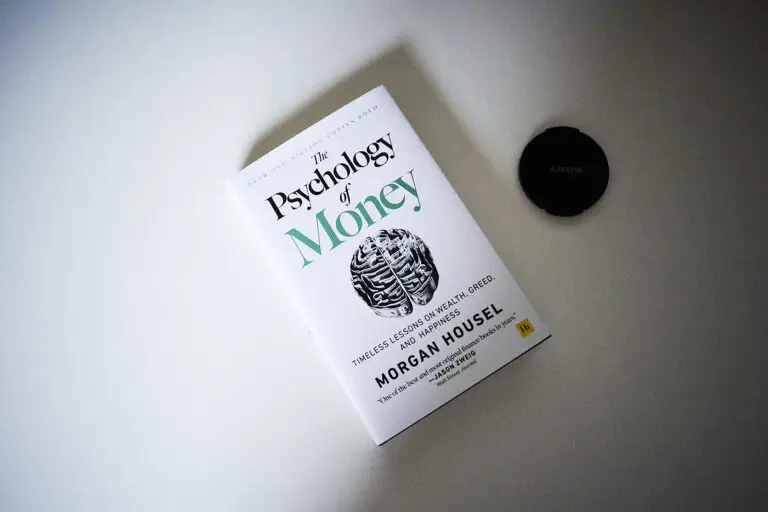
This book is about how money affects a person’s behavior. accordingly in his book Morgan housel tells about the behavior impact of persons by money and how money impacts people’s mind and behavior .
Here are engaging summary of the book The Psychology Of Money.
1.No One Is Crazy:-

Credit-bookiestalk
No one is crazy as you think there are probably the mind set and situation are more different than you think it is people experience situation and condition define how they behave with money probably someone decision is sounds crazy to you but that’s is the best for them them we don’t know what that person have gone thru the life and in what condition they are probably there are thinking what you even can’t imagine for example in some americans spend their money on lottery , movies and video games and most of them are very poor . The lowest- income household in the US on average spends $412 a year on lottery tickets , four times the amount of those in the highest income group . those who say they can’t come up with $400 in an emergency,
That seems crazy to me . it probably seems crazy to you , too. But I’m not the lowest income group . you are likely not either so we can’t grasp the subconscious reasoning of low – income lottery ticket buyers.
But stain a little and , you can imagine it going something like this: – we live saving and paycheck seems so out of reach we can’t afford nice vacations , new cars , health insurance , or homes in safe neighborhoods cant put our kids through college without dripping debt. We are paying for a dream , and you may not understand that because you are already living a dream. That’s why we buy more tickets than you do.
We do crazy stuff with money because we are new to this game. what looks crazy to you might make sense to me. But no one is crazy, we all make decisions based on our unique experience that make sense to us in a given moment Now lets move to 2 chapter luck & risk as nothing as good or as bad as it seems.
2.Luck & Risk:-
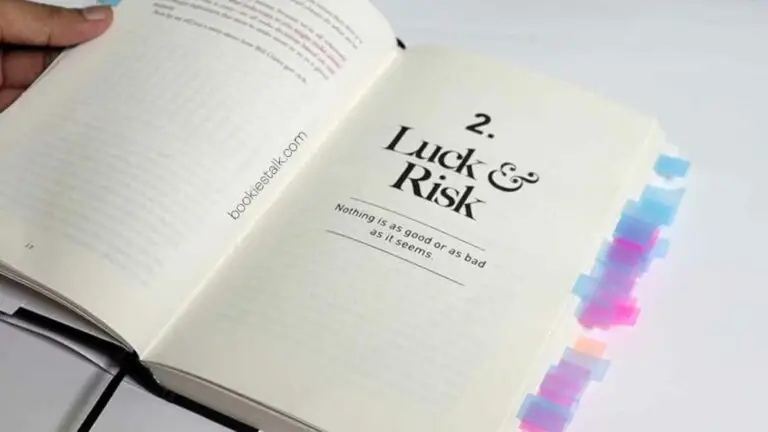
Luke and risk are both sibling , there both are reality guide by fores and individual efforts
Housels told a story about bill gates, how once said in an interweave that if there had been no lakeside , there would have been no Microsoft . as most collage and schools did not have a computer anywhere near as advance as bill gates had access too in eight grad . and his two friends kent evans , and paul allen three of them are smart enough and had plan to go collage together unlike paul allen , kent sharded bill’s business mind and endless ambition he had said that “ we would have kept working together.
I’m sure we would have gone to college together “ he could have been founding partner of microsoft with gates and allen but it never happened ket died in a mountaineering accident before he graduated high school. Gate experienced one in a million luck by ending up at lakeside . Kent even experienced one in a million risks by never getting to finish what he and Gates set out to achieve .
There are lots more stories like this about luck and risk how a two startup owners end up on two sides of reality if some startup works and other don’t that doesn’t means that who get bankrupted don’t work harder for their dreams there have not puts the effort and knowledge that required but may be sum have been lucky in some stage of time and end up being successful and other one may end up on the risk side and end up being bankrupt .
But two things can put you in better direction
- Be careful who you praise and admire. Be careful who you look down upon and wish to avoid becoming.
- Therefore , focus less on specific individual and case studies and more on board pattern
More important is that as much as we recognize the role of luck in success , the role of risk means we should forgive ourselves and leave room for understanding when juging failures .
Now let’s look at the stories of two men pushed their luck in chapter 3 never enough (when rich people do crazy things)
3.Never Enough
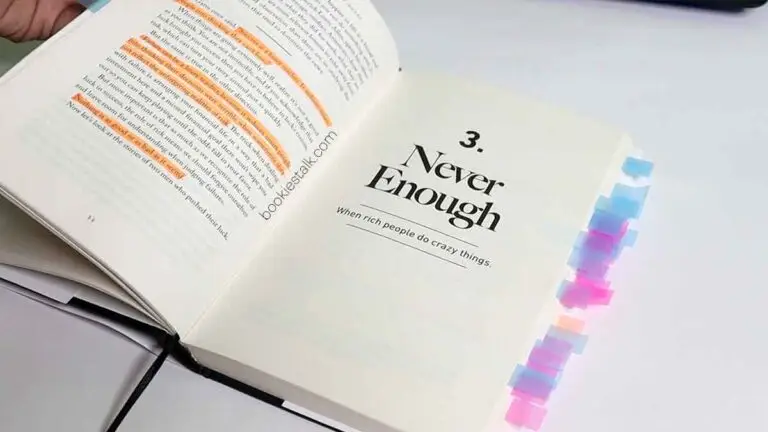
Some people will never get enough of anything and the money numbers of those people are quite high so here Housel offers two examples of the danger of not having enough, and what they can teach us.
Gupta ceo of mcKinsey , he was from a slum of kolkata then he became one of the most successful business alive. But he never felt enough of what he had. By 2008 Gupta was reportedly worth $100 million. well it’s an unfathomable amount for most he could have anything he wanted in life.
Rajat gupta wanted to be a billionaire and he wanted it badly that he even keep that on sale what he had in hope and greed of more he lost what he had heard all this time he got arrested for insider trading . he is not the only person who did this there are more examples of persons like Bernie Madoff’s non -fraudulent business was by any measure a huge success . it made him huge-and legitimately- wealthy.
It just does not make sense if you risk something that is important to you for something that is unimportant to you. So house write three thing to keep in mind if you are one of them
- The hardest financial skill is getting the goalpost to stop moving
- Social comparison is the problem here
- “Enough is not too little
- There are many things never worth risking , no matter the potential gain
Let’s give you a quick understanding of what he means by these four things first , if your expectation is raised by the result. There is no logic in striving for more. you will feel the same after putting extra you will end up in a cycle of more and more . its never ending cycle until it get everything you have now .a second social comparison is that it’s a beatel to won and the best way to win it not to fight – to accept that you might have enough , even if its less then around you it’s still enough , realizing that the opposite- an insatiable appetite for more – will push you to the point of regret . the inability to deny a potential dollar will eventually catch up to you . forth there are many thing that not worth risking *reputation is invaluable , freedom and independence are invaluable, family and friend are in valuable , being loved by those who you want to love is invaluable , happiness is invaluable.best shot at keeping these things is knowing when it’s time to stop taking risk that may harm them
The good thing is that the most powerful tool for building enough is remarkable simply , and doesn’t require taking risks that could damage any of these things . that’s the next chapter chapter 4 confounding compounding
4. Confounding Compounding
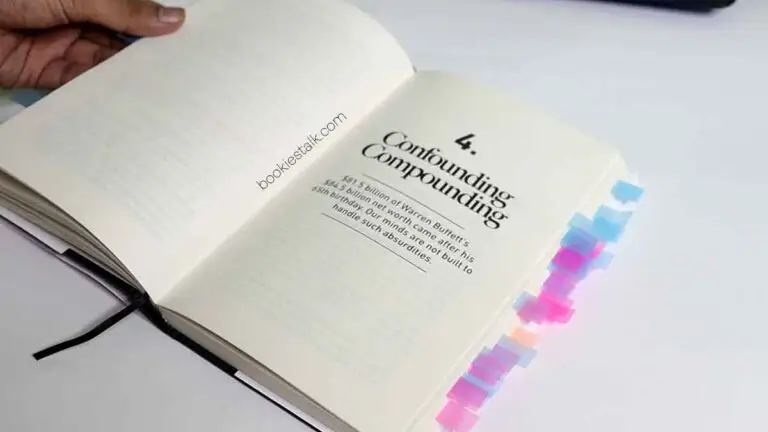
In this chapter Morgan housel describes how small things matter a lot. it’s like a snowflake that’s small and practically weightless now, but over time, countless snowflakes accumulate to form glaciers. These huge glaciers may even sculpt whole landscapes, cutting valleys and moving continents. Even the simplest things may add up to become something huge over time!. That is how compounding works if a little growth serves as the fuel for the future . a small starting base can lead to results so extraordinary they seem to defy logic . it can be so logical – defying that you can underestimate what possible where growth comes from , and what it can lead to. . there is an example of warren buffett . warren Buffett’s net worth is $84.5 billion. Of that $84.2 billion was accumulated after his 50th birthday, $81.5billion came after he qualified for social security . in his mid 60s.
He was a phenomenal invest . but you miss a key point if you attach all he’s success is that he’s been a phenomenal investing in his 30 he had net worth of $ 1 million , or $9.3 million adjusted for inflation. All warren buffett’s financial success can be tied to the financial base he built in his pubescent year and the longevity he maintain in his geratic years . his skill is investing , but his secret is time
That’s how compounding works
A good investment isn’t necessarily earning the highest return . because the highest return tend to be one -off hits that can’t be repeated . it’s about earning pretty good return that you can stick with and which can be repeated for the longest period of time . that’s when compounding runs wild.
The Opposite of this – earning huge return that can’t be held onto – led to tragic stories. What housel tells in the next chapter 5 getting wealthy vs. staying wealthy.
5. Getting Wealthy VS Staying Wealthy
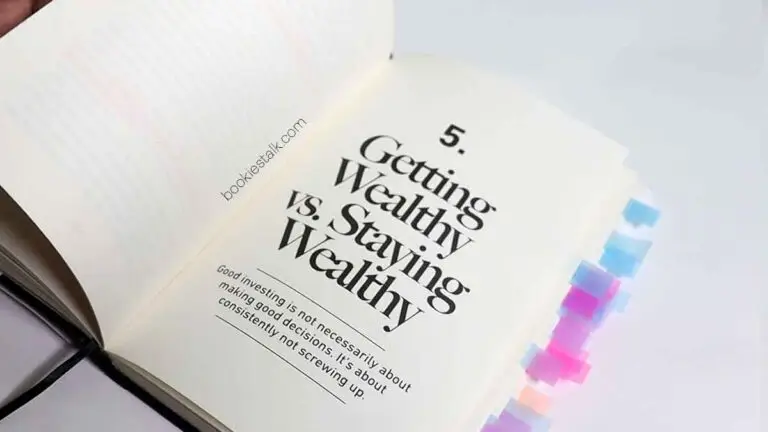
In this chapter housel says that how to get wealthy this is what everyone tell about but no one raises a top on how to stay wealthy that’s a topic we don’t discuss enough. Housel tells a story about two investors, jesse livermore. he was the greatest stock market trader of his day born in 1877, he became a trader before most people knew you could do such a thing. The stock market crash that year that unshed in the great depression cemented his legacy in history . but in a stroke of genius and luck, he had been shorted the market, better that stock would decline. And this his this decision saved him from a huge loss.
After his 1929 blow out livermore , overflowing with confidence , made larger and larger bets . he wound up far over his head , in increasing amounts of debt and eventually lost everything in the stock market . another investor is Michael moritz , the billionaire head of sequoia capital.moritz mentions longevity , nothing that some VC firms succeed for five or then year , but sequels have prospered for four decades. Cus his mind set was like “ we assume that tomorrow won’t be like yesterday we can’t afford to rest on our laurels . we can’t be complacent . we cant assume that yesterday’s success translates into tomorrow’s good fortune”. here housel says that surviving this should be the biggest difference . This should be the cornerstone of your strategy . whether it’s in investing or your career or a business you own.in this chapter he told about three things which apply to a survival mindset
- More than I want a big return , I want to be financially unbreakable. And if i’m unbreakable i actually think i’ll get the biggest returns , because ‘ll be able to stick around long enough for compounding to work wonders.
- Planning is important, but the most important part of every plan is to plan on the plan not going according to plan
- A barbell personality-optimistic about the future, but paranoid about what will prevent you from getting to the future- is vital.
Next chapter 6 another growth in the face of adversity can be so hard to wrap your head around.
6. Tail You Win
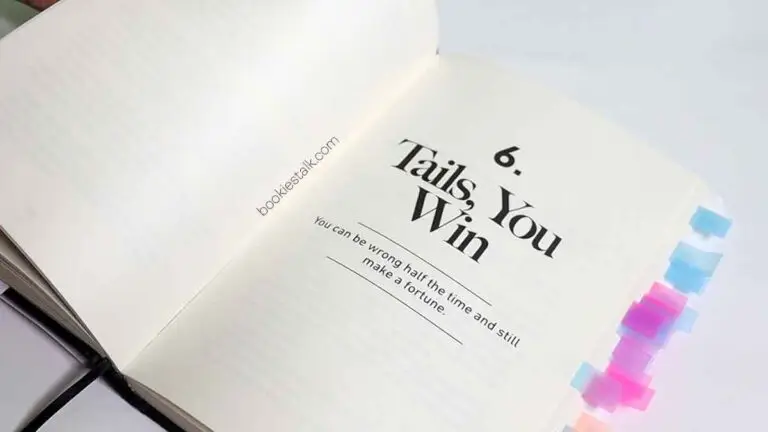
You can be wrong half of the time till you make a fortune . In this chapter he tells about how just one thing can change your life naturally, how in your all efforts one effort can be so great that it is capable of changing the whole game,and how Disney’s first studio went bankrupt . their films were monstrously expensive to produce, and financed at outrageous terms. By the mid -1930s Disney had produced more than 400 cartoons. Most of them were short , most of them were beloved by viewers, and most of them lost a fortune. Snow white and the seven dwarfs change everything. The $8 milloin it erran in the first six months of 1938 was an order of magnitude higher than anything the company earned previously .it transformed Disney studios. All company debts were paid off. Keuy got retention bonuses. The company purchased a new state-of-the art studio in burbank. You could say it skill, you could say it luck. But it did change something very big .
When you accept that tails drive everything in business, investing and finance you realize that it’s normal for lots of things to go wrong , break , fail, and fall.
If you’re a good business leader maybe half of your product and strategy idea will work. He said that no one makes good decisions all the time . The most impressive people are packed full of horrendous ideas that are often acted upon. It’s not whether you’re right or wrong that’s important , but how much money you make when you’re right and how much money you lose when you’re wrong. You can be wrong and still make a fortune .
Next chapter, which is chapter 7 “Freedom “ ,tells about how much can make you happy and even happier.
7. Freedoom”
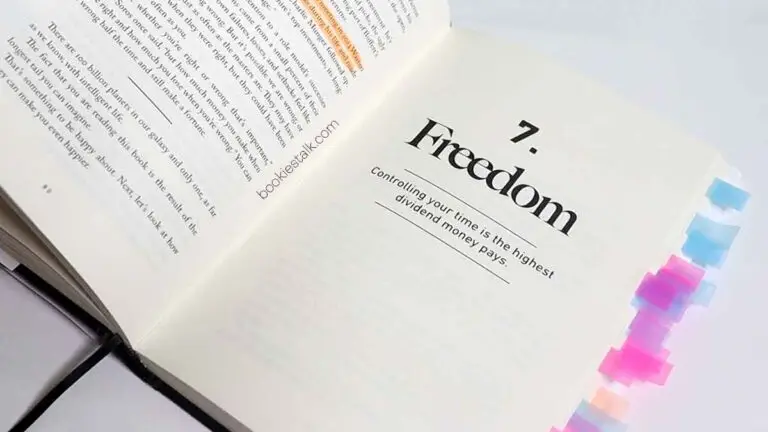
Controlling your time is the highest dividend money pays. People want to money to control what they want. to be free, having their freedom. wake up every morning and say i can do whatever i want today freedom of every single thing and that’s make them happy . Happiness is a complicated subject but everyone’s different but a universal fuel of joy it’s that. People want to control their lives. The ability to do what you want , when you want , with who you want , for as long as you want, is priceless . It is the biggest dividend money pays.
Most people don’t feel happy in today’s world. people work 24 hours in their mind. And after computer become more advance and 24*7 availability of network by this people can work from their home to which lead them to work 24*7 in their mind even when you are taking a rest your mind will be on a word which is still mending in your computer.
Derek Thompson wrote in his book “No one, not a single person in a thousand, said that to be happy you should try to work as hard as you can to make money to buy the things you want. No one said that if you earn more money then you have now it’s a real success , one said you should choose your work based on your desired future earning power” . your family doesn’t want your money anywhere near as much as they want you.
Now , a short chapter on one of the lowest dividend money pays.chapter 8 man in car paradox.
8.Man In The Car Paradox
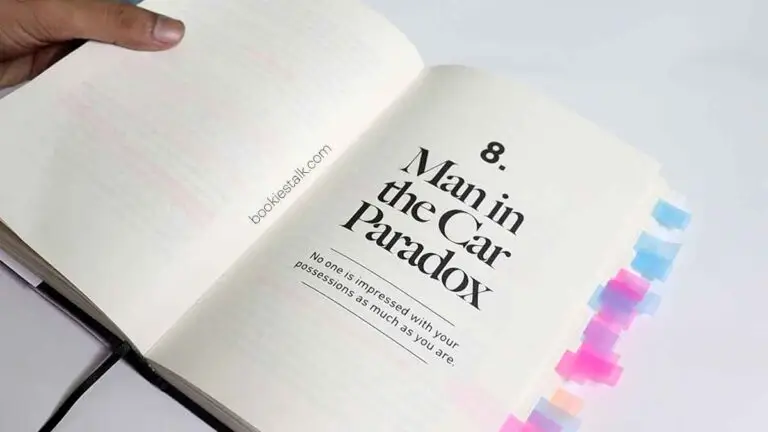
In this chapter housel say that money can’t buy you respect. Just like if we see someone in a luxury car our attention stays on the car but not the person who is driving it . People tend to want wealth to signal to others that they should be liked and admired. So they spend their money on luxury to be admired by people. but in reality those people often bypass admiring you, not because they don’t think wealth is admirable , but because they use your wealth as a benchmark for their own desire to be liked and admired.
Housel point is here not to abandon. Wealth but subtle recognition that people generally aspire to be respected and admired by others , and using money to buy respect and admiration use empathy it will bring you more respect than horsepower ever will.
The next chapter, chapter 9 is about ferraris . another story about the paradox of fast cars in the next chapter.
9.Wealth Is What You Don’t See
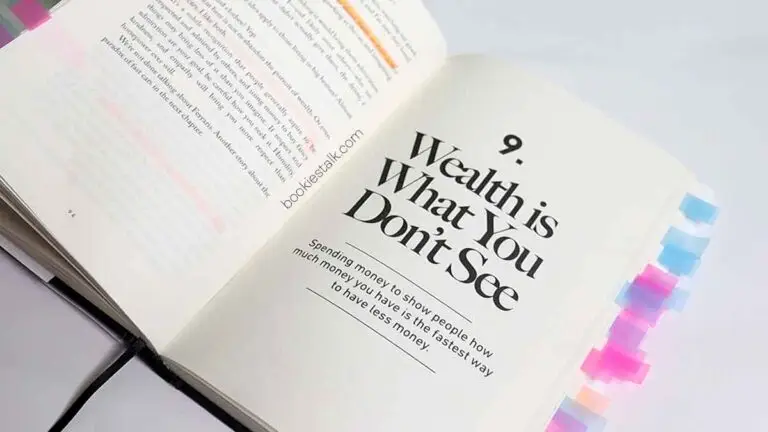
Spending money to show people how much money you have is the fastest way to have less money.
Richness is what you can see like luxury cards , big mansions, luxury clothes but wealth is what you can’t see like investment , property , and business. Wealth is financial assets that have not yet been converted into stuff you see . singer Rihanna nearly went bankrupt after overspending and sued her financial advisor . the advisor responded :” was it really necessary to tell her that if you spend money on things , you will end up with the things and not the money . well you can laugh but ya it is necessary to tell them . The problem for many of us is that it is easy to find rich role models .
It’s hard to find wealthy ones because by definition their success is more hidden. The world is filled with people who look modest but are actually wealthy and people who look rich who live at the razor’s edge of insolvency. Keep this in mind when quickly judging other’s success and setting your own goals.
Now a question arises if wealth is what you don’t spend , what good is it ? well the next chapter is about convincing you to save money.
10. Save Money:-
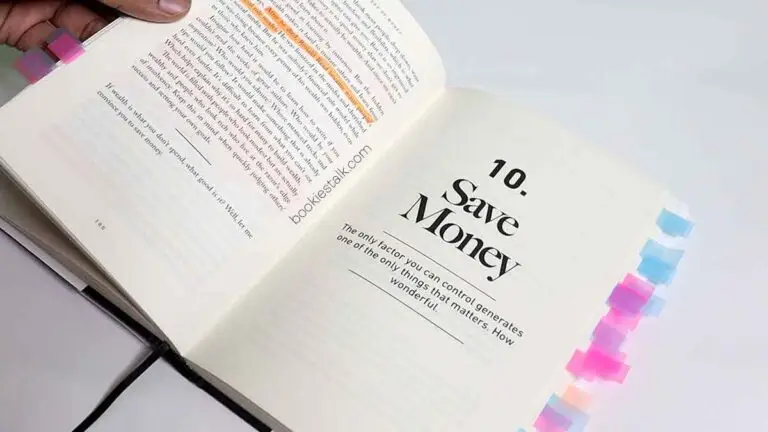
In this chapter Morgan housel convinces every person to save money it would not take long but it’s an odd task , inst it ?. He categorizes people into three groups those who save, those who don’t think they can save, and those who don’t think they need to save.
- The first idea- simple , but easy to overlook -is that building wealth has little to do with your income or investment return, and lots to do with saving rate.:- By saving, you create a buffer, giving yourself options and control over your future. Without savings, you’re at the mercy of whatever life throws at you, but with even a modest amount set aside, you’re prepared to handle unexpected situations on your terms.
- More importantly – The value of wealth is relative to what you need. :- Wealth is only as valuable as what it can provide for you. If it covers what you truly need, it’s enough—even if it’s not a huge amount.
- Past a certain level of income– what you need is just what sits below your ego.:-Once you reach a comfortable income, wanting more is often about satisfying ego, not real needs. It’s about impressing others, not improving your life.
- So people’s ability to save is more in their control than they might think:-People can save more than they realize—it’s often about adjusting habits, not just income. Small changes in spending can lead to big savings over time.
- And you don’t need a specific reason to save:-You can save simply to be prepared— No special reason needed. Savings give you options and peace of mind for whatever the future brings.
- That flexibility and control over time is an unseen return on wealth- savings gives you freedom and choices over time, which is a valuable benefit. This control is like an invisible reward that wealth brings.
- And that hidden return is becoming more important hidden benefit— Freedom and choice from savings—is increasingly valuable today. Life’s uncertainties make flexibility more crucial than ever.
In all these ideas housel is trying to make it understand that how important saving is . having more control over your time and options-– is becoming one of the most valuable currencies in the world.
That’s why more people can, and more people should , save money.
11. Reasonable>Rational
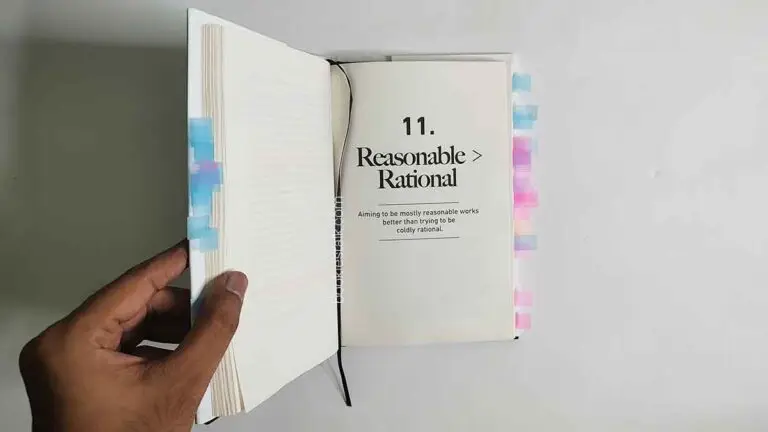
In These chapters Morgan Housel stresses that people make financial decisions based on their own histories, attitudes, and life experiences, rather than pure reasoning. He contends that being “reasonable” with money—making decisions that seem right to you personally—can frequently outperform strictly “rational” financial advice. Housel says that, while flawless judgments are not always achievable, actions that are consistent with your beliefs and allow you to sleep soundly at night are more sustainable and gratifying in the long run.The key takeaway is that understanding your own values and feelings about money leads to more satisfyinh action . Essentially, he encourages readers to prioritize what feels right for them over what might be seen as the most logical approach.
12 . Surprise
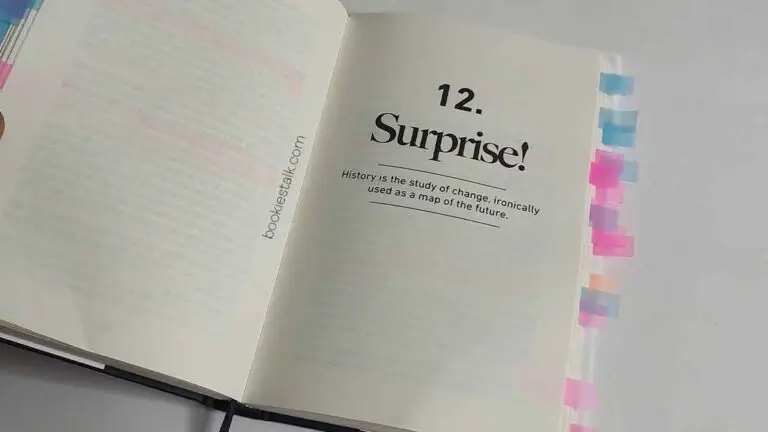
In this chapter housel explain that how unexpected event can change your life he said that future is unexpected and filled with surprise – it can be positive and negative he euncraged us to be more optimistic and positive and make flexibility in there financial plane . he says to dangerous things happen when you rely too heavily on investing history as a guide to what going to happen next,
- You’ll likely miss the outlier event that moves the needle the most :-He discusses the way individuals tend to focus on typical patterns and trends while overlooking the uncommon occurrences that might have the greatest impact. The notion is captured in these lines:
- History can be a misleading guide to the future of the economy and stock market because it does’’t account for structural changes that are relevant to today’s world:-history is often a poor guide to the future of the economy and stock market because it fails to account for structure change. the most significant changes often came form factors that were not present in previous data
That does not means we should ignore history when thinking about money. But specific trends , specific trades , specific causal relationships about markets. And what people should do with their money is always an example of evolution in progress. History is not prophets.
After this question arises , then how should we think about and plan for the future ? housel explain it in next chapter chapter 13 room for error.
13. Room For Error
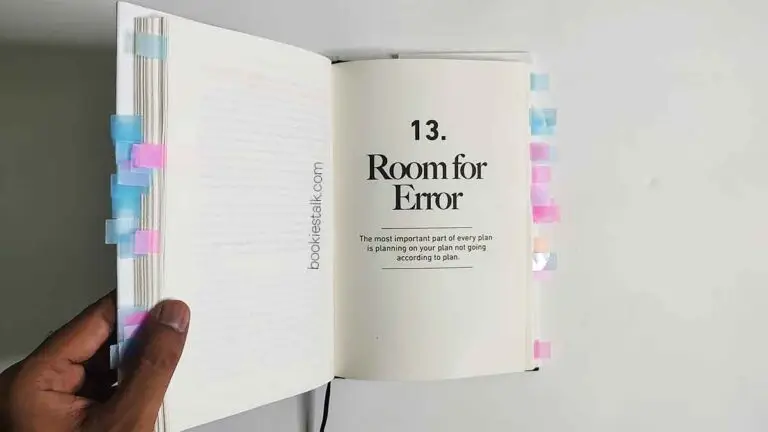
It’s not possible to predict the future related to money because the economy changes according to time. There is two examples of how a room for your errors is important to save you from upcoming loss. Bill gates understand it well he did came up with this incredible conservative approach he told “ i wanted to have enough money in the bank o pay a year’s worth of payroll even if we didn’t get any payment coming in “ . and then in other hand at the time of world war second german tank unit was reserved on grassland outside the city.
When tanks were desperately needed on the front line , something happened that surprised everyone: almost none of them worked out of 104 tanks in the unit, fewer than 20 were operable. Engineers quickly found the issue mice had nested inside the vehicles and eaten away insulation covering the electrical system. You can imagine disbelief . This almost certainly never cross ther mind . you can plan for every risk expect the thing that are too crazy to cross your mind always have room for errors.
Now the next chapter is about how the most important part of the plan is that your plan is not going according to your plan chapter 14 you’ll change.
14.You’ll Change
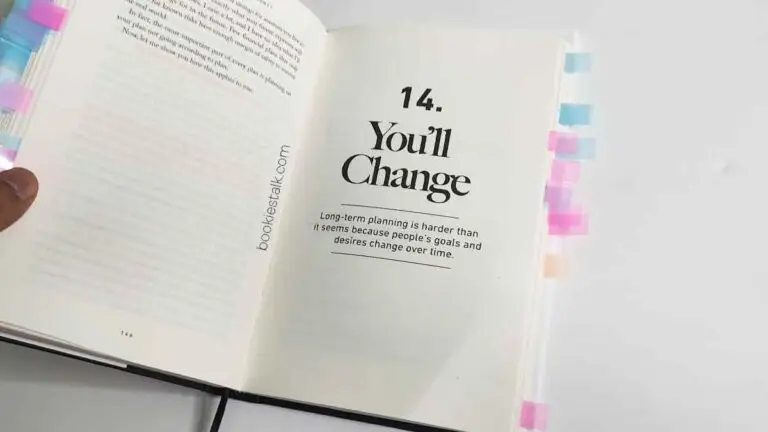
In this chapter housel tell about how humans mind change eventually Consider someone who begins a job in finance with the goal of earning a high salary. Individuals acquire experience and begin to prioritize work-life balance, job satisfaction, and personal fulfillment over financial gains.
Individuals may elect to pursue a less profitable but more meaningful profession in a non-profit organization or a field that interests them. We should also come to accept the reality of changing our mind . Embarrassing the idea that financial goal made when you were a different person should be abandoned without mercy versus put on life support and dragged on can be a good strategy to minimize future regrets . the quicker it’s done, the sooner you can get back to compounding.
Next chapter is about compounding’’ is price of admission
15. Nothing Is Free
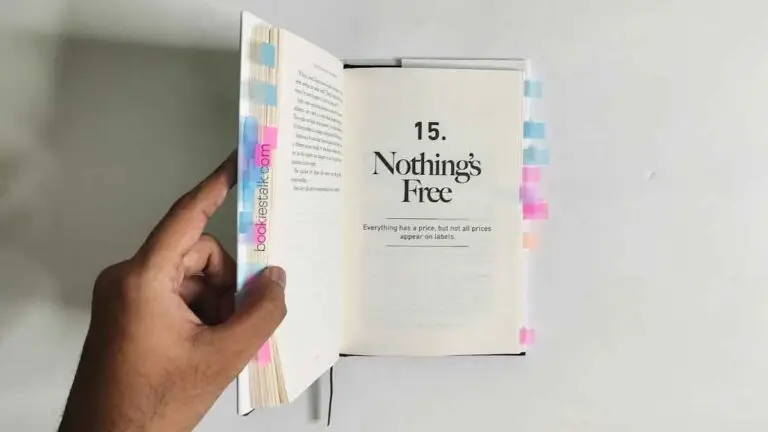
In this chapter the housel says that if you want it then you have to pay for it too . like if you want to buy a car then there are three options: first give the full money and buy the car , second if you have less money then buy a second hand car , third is stale it.
Most people don’t choose third option because they know the consicuance of it just like this in investing . number one you have to pay and accept that in share market up and down is its nature . second is buy assets with low risk.if you what to earn more profit in less time then use cleverness and strategy . but fun fact is that most of the people use strategy like stealing a car they what to sell and buy shares without any research In the pursuit of becoming rich, they often lose the money they have.
According to Housel Before investing in the market, understand it thoroughly. otherwise, you have to bear the loss and pay a heavy price.
16 . You & Me
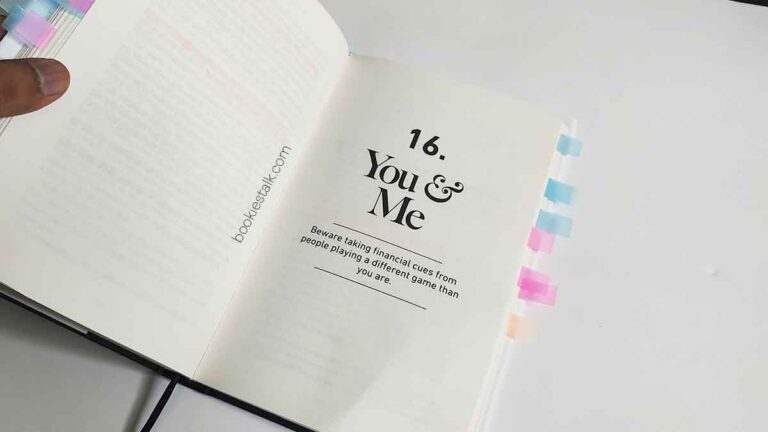
Inyhthis charter housel says every person is different from each other . Their expectations , wishes and wants are different and the same happens with investing. every person is different. Like there is an example in a book. people can look at yahoo! Stock in 1999 and say”that was crazy ! a zillion times revenue! The valuation made no sense!”. But manu investor who owned yahoo.
Stock in 1999 had a time horizon in short that it made sense for them to pay a ridiculous price. A day trader could accomplish what they need whether yahoo! Was at $ 5 a share or $500 a share as long as it moved in the right direction that day . and did. For years.
When a billionaire or successful person appears on news channels offering advice and encouragement . It feels really inspiring to listen to . but in real life. Actually applying advice and suggestion is incredibly challenging , especially due to the high risk involved. we often hesitate to take on such task because we know , better than anyone else , whether we’re really capable of doing them . yet these successful individuals on TV don’t fully understand the unique astrill gel or limitation we might face .
which is why It’s impossible for everyone to become wealthy through the same method, which is why housel says beware taking cues from people playing a different game than you are. their strategy may work for them but could be completely unsuitable for
your own unique gloss, resources . and circumstances.
Now let’s talk about pessimism. in chapter 17
17. The Seduction Of Pessimism
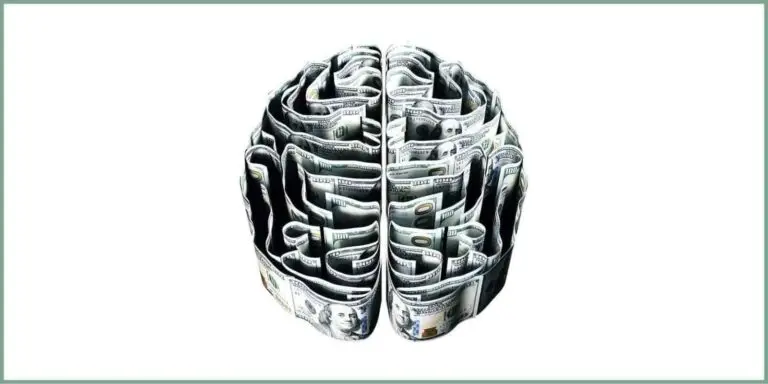
In this chapter Morgan housel explains why pessimism may feel more compelling and credible than optimism. Negative news attracts greater attention because it seems urgent and cautious, helping us feel more prepared for any losses. If you tell someone that everything will be great and they’re likely to either shrug you off or offer a skeptical eye . tell someone they’re in danger and you have their undivided attention. Same happens in investing.
When the stock market drops, people panic and sell, fearing further losses, even though historically, the market has always rebounded over time. But five other things make financial pessimism easy, common, and more persuasive than optimism.
- One is that money is ubiquitous , so something bad happening tend to affect everyone and captures everyone’s attention
- Another is that pessimiste often extrapolate present trends without accounting for how markets adapt.
- A third is that progress happens too slowly to notice, but setbacks happen too quickly to ignore.
Expecting things to be great means a best – case scenario that feels flat. Pessimism reduces expectation , narrowing the gap between possible outcome and outcome you feel great about. Maybe that’s why it’s so seductive, expecting things to be bad is the best way to be pleasantly surprised when they’re not.
Which, ironically, is something to be optimistic about. Now let’s talk about it.
Now let’s talk about stories.
18. When You’ll Believe Anything

People frequently respond rapidly to news and rumors—for example, hearing something unfavorable about Lucklig Company, which prompts them to sell its stock, only to later realize it was a rash action. Similarly, some people may hear positive things about a company and acquire its stock in the hopes of profiting, only to lose money when the firm
- The more you want something to be true, the more likely you re to belie a story that overestimates the odd of it being true
Ali hajaji’s son was sick . elders in his yemeni village proposed a folk remedy . shove the tip of the burning stick through his son’s chest to drain the sickness from his body . after the procedure . Hajai told the New York Times “when you have no money, and your son is sick you’ll believe anything” . this situation explains the line perfactully.
- Everyone has an incomplete income view of the word . but we form a complete narrative to fill in the gape.
“We’re all biased and have incomplete information, and the stories we tell ourselves to fill in those gaps often lead us to make decisions that reflect those biases.”
The ability to convince yourself that you’re right is a powerful one, but it’s also the easiest way to become ignorant.
This emphasizes the necessity of understanding how tales impact our views and financial decisions.
But like the one who’s confident he knows what’s happening based on what he sees but turns out to be completely wrong because he can’t know the stories going on inside everyone else’s head?
He’s all of us.
Now let’s go to chapter 19 :- all together now
19 All Together Now
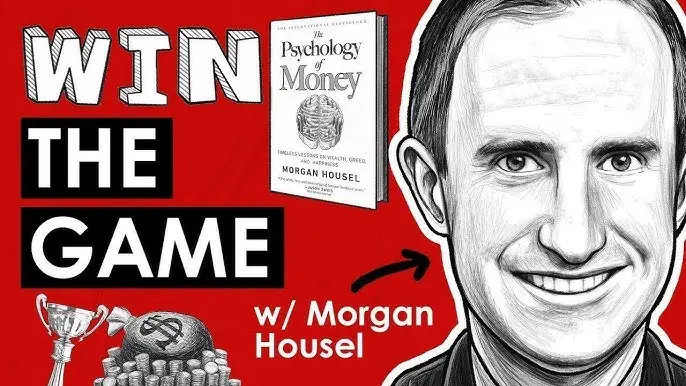
In this chapter housel simply summarizes all the chapters we have so far so here housel says what you do with your money doesn’t want to treat you like a dentist isn’t useless. They know. They know the odds. They know what tends to work, even if patients come to different conclusions about what kind of treatment is right for them.
Financial advisors are the same . There is a universal truth in money. Even if people come to different conclusions about how they want to apply those truths to their own finances . with that caveat in place , let’s look at a few short recommendations that can help you make better decisions with your money.
- Go out of your way to find humility when things are going right and forgiveness/compassion when they go wrong.
- Manage your money in a way that helps you sleep at night
- If you want to do better as an investor , the single most powerful thing you can do is increase your time horizon.
- Become OKwith a lot of things going wrong. You can be wrong half the time and still make a fortune
- Use money to gain your time over your time ,
- Be nice and less flashy
- Save. just save.you don’t need a specific reason to save
- Defne the cost of success and be ready to pay it
- Worship room for errors
- Avoid the extreme end of the financial decisions
- You should like risk and because it pay off over time
- Define the game you’re playing
- Respect the mess
This is what We’ve read everything up to now, and we’re on the last chapter, which is confession
20. Confessions
Will making important financial decisions are not made in spreadsheets or in textbooks . They are made at the dinner table . They often aren’t made with the intention of maximizing risk ,but minimizing the cause of disappointment for a spouse or child . Those kinds of things are difficult to summarize in charts or formulas, and they vary widely from person to person. what works for one person may not work for another. Here’s are somethings what works for him(morgan house)
- How my family think about savings
He values independence over riches, motivated by his parents’ austere lifestyle. Despite increased salaries, he and his wife maintain a modest lifestyle, which allows them to save more. They paid off their mortgage for psychological comfort and maintained cash reserves to cover unforeseen needs, confirming their objective of financial freedom.
- In this para housel tell about the second phase of his life where he picked first dividend , but now he adapted a low -cost index fund strategy . because he thinks it gives more chances to achieve goals and it is less risky . he argues that when some people can bet on the market and be successful . but some people can’t do this and simple investments get better results . but constant investing , high saving rate , and patience are complex strategies but it’s more important at the end there focus is financial independence and getting peace of mind not to outperform the market . This approach prioritizes personal comfort and wealth accumulation from a long term perspective.
No matter how we save or invest, I’m sure we’ll always have the goal of independence, and we’ll at night. We think the ultimate goal is mastery of the psychology of money.
*The Parting Note!
In this book “The Psychology of Money “Housel emphasizes that the real secret of effective money management is human psychology, not technical theories. This book provides a new cityscape for traders and investors focusing on resilience, risk management, and long-term patience.This book provides investors and traders a clarity on how human behavior impacts people’s decisions and allows them to avoid impulsive design-making.
